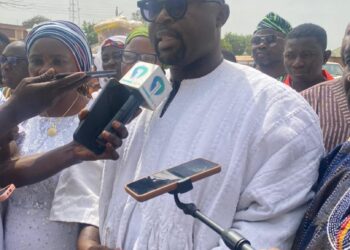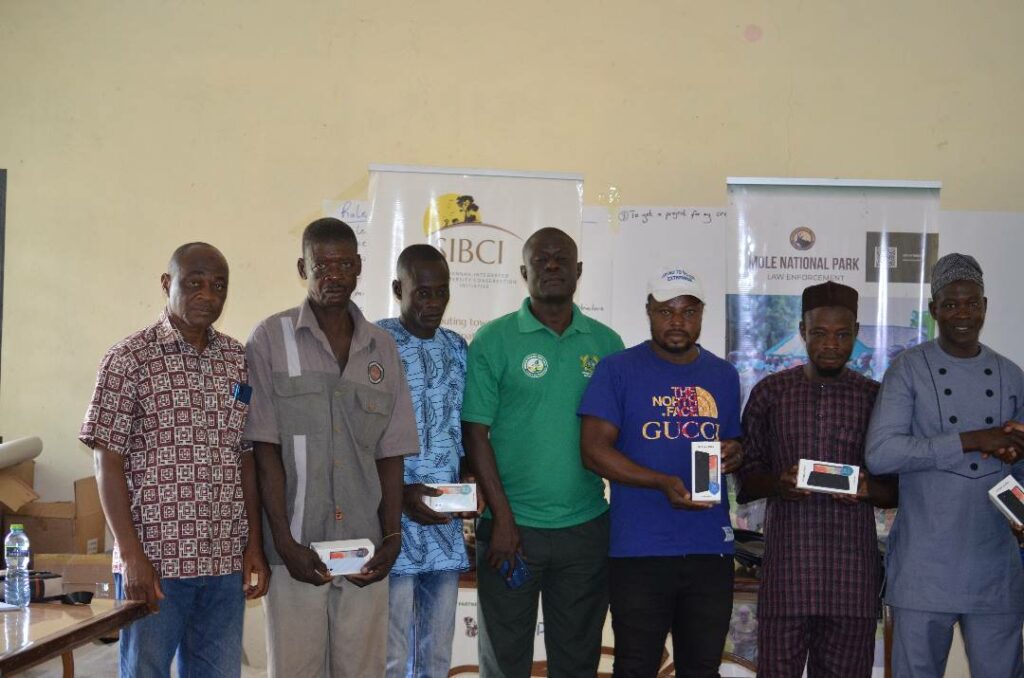
.
The Ghana wildlife Society in collaboration with Mole National Park has organised a four day training workshop for Community Resource Management Areas ( CREMAs ) in the Mole ecological landscape on biodiversity monitoring and threat assessment to help build the capacity of the selected CREMA members to enable them effectively monitor and manage the natural resources in their communities.
The training forms part of activities under the project; Savannah Integrated Biodiversity Conservation Initiative (SIBCI) with funding support from the European Union.
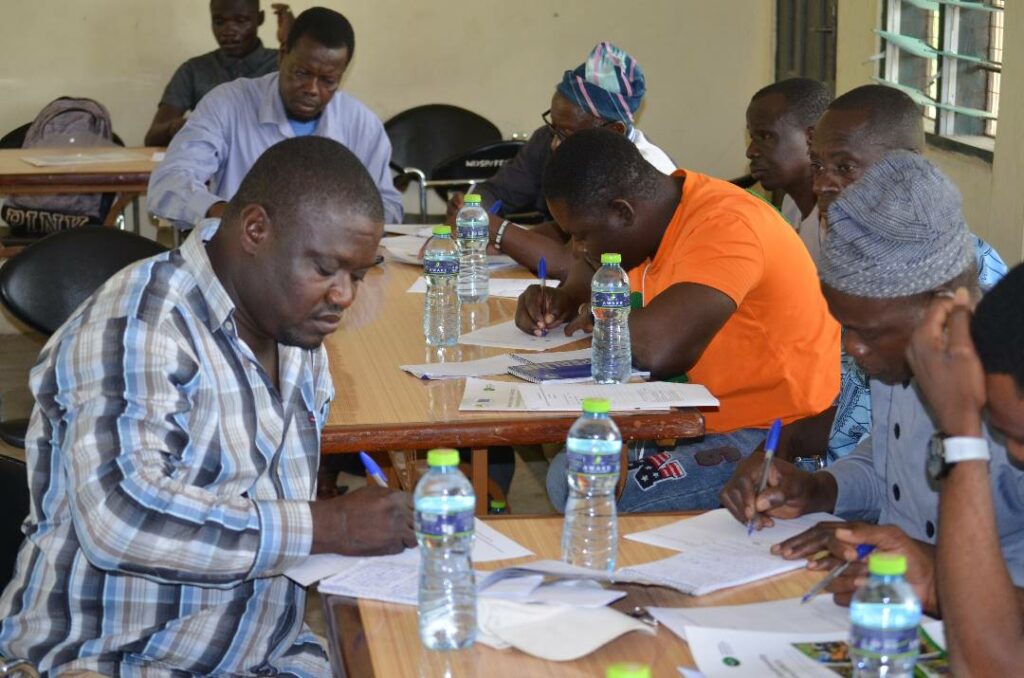
During the training, they were provided with the needed knowledge and skills to monitor biodiversity and identify potential threats and also equipped to make informed decisions about the management and conservation of their natural resources.
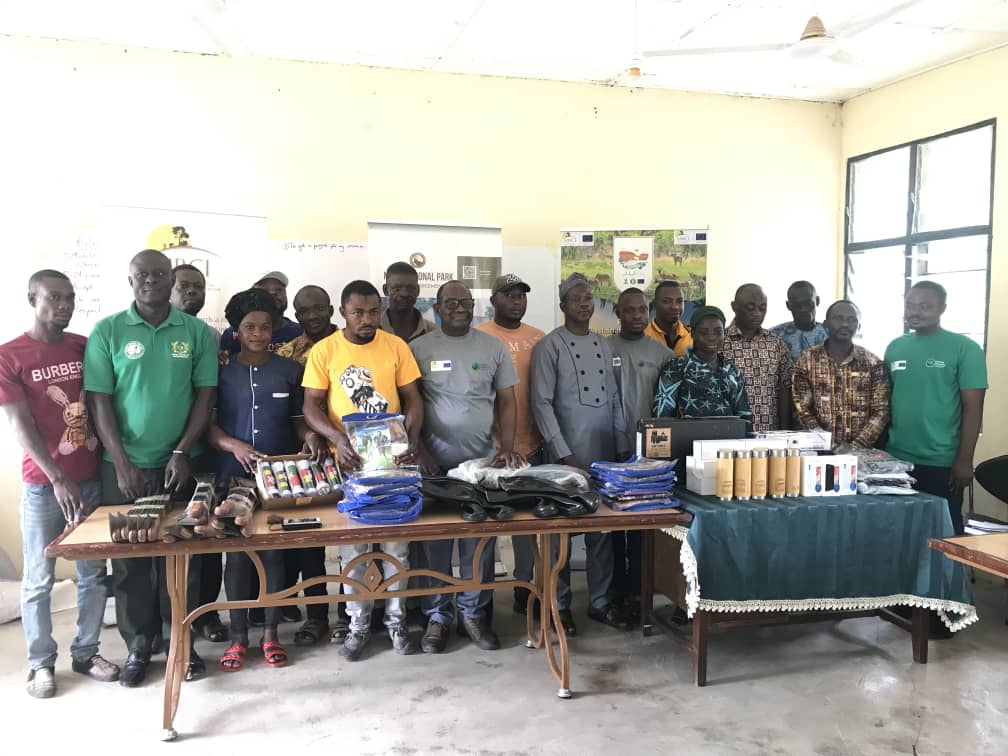
After the training, the Ghana wildlife society presented some equipments to the selected CREMAs aimed at building the capacity of the selected members.
The equipments presented to help the CREMAs enhance their biodiversity monitoring and data collection included: cutlasses, Wallington boots, tough lights, rain coats, mobile phones among others with the management of Mole National park also receiving Laptop computers, Cameras and other equipments to help resource them in their field work.
The beneficiary CREMA communities include that of Murugu-Mognori, Grubagu – Wawato, Bawena – Kpulumbo, MWK, Charlie – Sungmaaluuu, Kunlog ( Jelinkon ), Yazori – Kumbo, Sojakoda, North Gonja Enclave / Donkompe and Kaden.
Presenting the items to the beneficiary members on Thursday, 6th April, 2023 at the Mole National park, Mr. Solomon Kenyenso, the Project Coordinator for the Ghana wildlife society in the Savannah region noted that the items given to them is not for nothing but to help enhance their work at their various CREMAs.
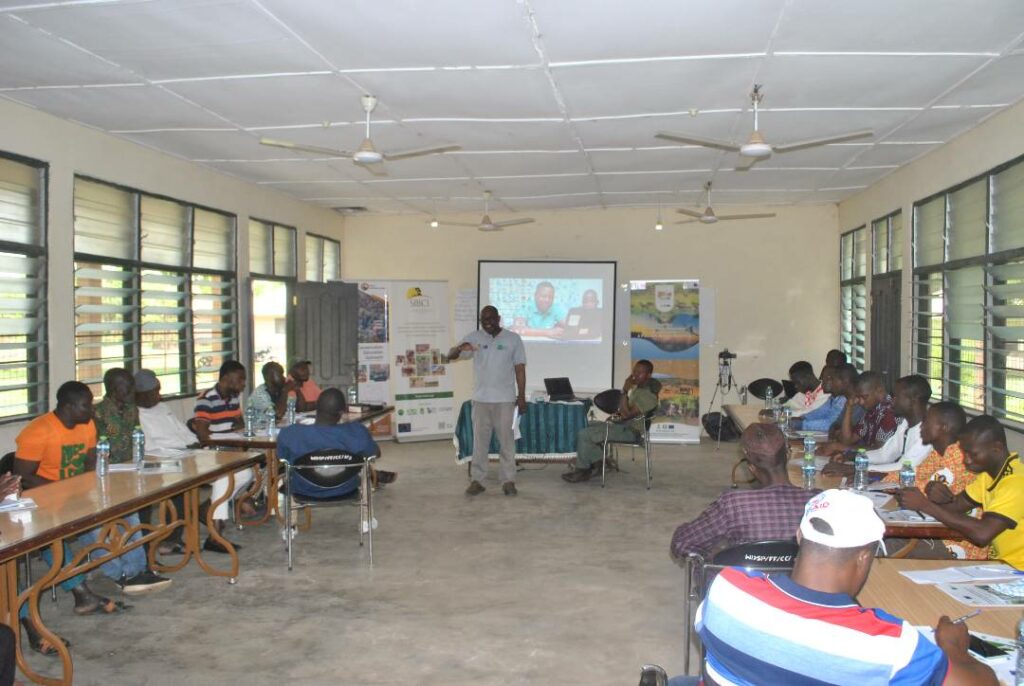
He said, although the procured items are not enough but believes it will go a long way to help them in their Monitoring and basic data collection as required of them as CREMAs.
He also urged the beneficiary CREMA members to make good use of the items presented to them to be able to achieve their set targets.
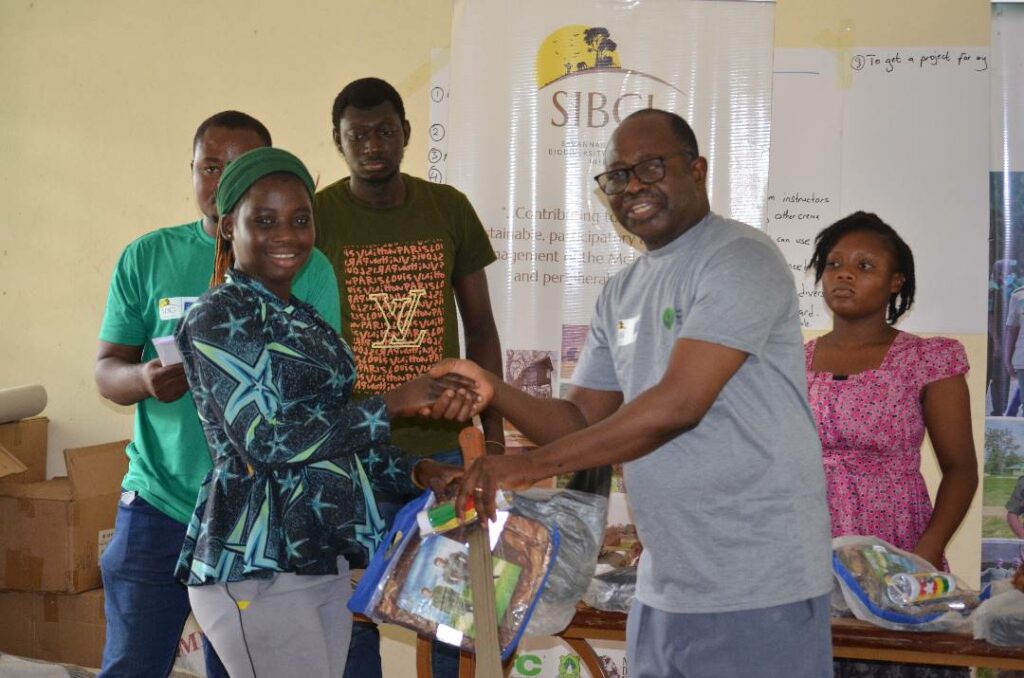
Rev. David Kpelle, the Executive Director of the Ghana wildlife society on his part urged the CREMA members to build bridges with their key stakeholders and cultivate the habit of having good relations with the traditional authorities in their communities who are supposed to be members of the CREMA for them to buy in and understand what the CREMA stands for.
He also disclosed that, in order for them to be able to succeed as CREMAs, there is the need for them to go the extra mile to convince, talk and dialogue with them to get their support so that they can help them address issues tabled before them.
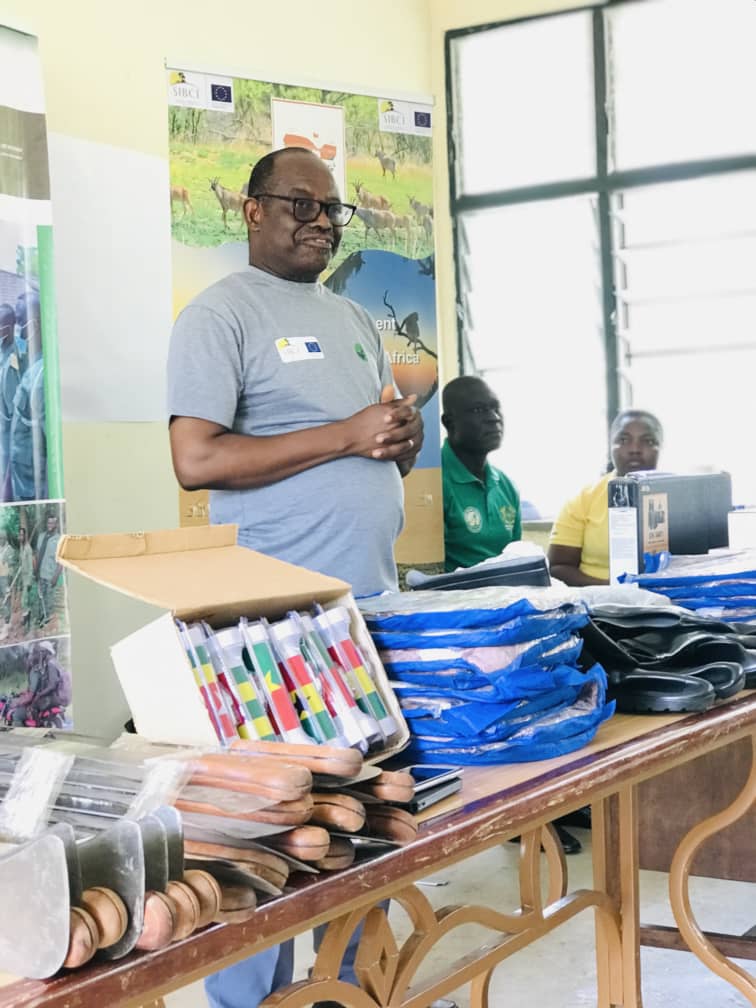
He said, they are going to put out publications on their success stories to showcase to their development partners for them to know how much they are touching lives and meeting the needs of people in the Mole ecological landscape.
He described CREMA as a rural development framework that is bringing to it’s members, benefits that are recognised by government and their development partners through the wildlife division and urged that the continue to support the management of Mole National Park to function properly to guarantee the sustainability of the CREMA and the Mole National Park.
The operations Manager incharge of protected area at the wildlife division of the Forestry Commission, Mr. Farouk Dubuire in addressing the CREMAs noted that, conservation is a huge and difficult task which calls for a shared responsibility that is beyond the responsibility of government.
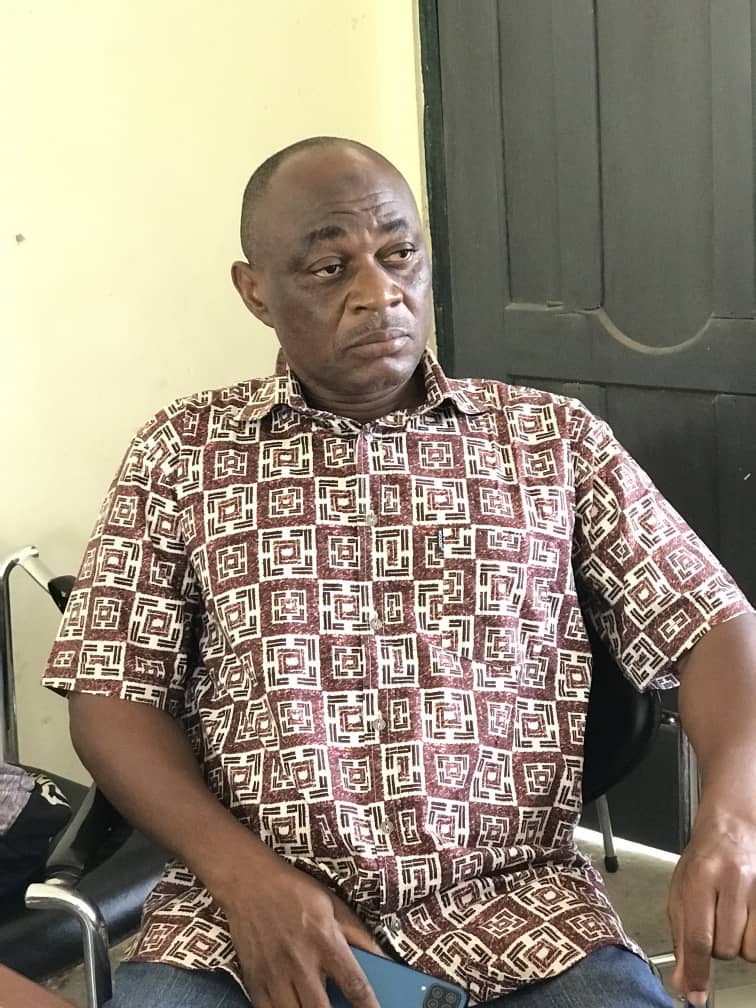
He said, it needs the support of both government and Non governmental, local organisations and beyond to be able to achieve it’s successes.
He appreciated the efforts of the Ghana wildlife Society and said, the wildlife division of the forestry Commission is fortunate to have them as one of their credible local NGOs that supported the course of conservation all this years and still continued to support them to achieve their objectives.
He also appreciated the emence contributions of the international community and their development partners who have extended their support to them over the years towards the conservation of natural resources in the savannah ecological zone.
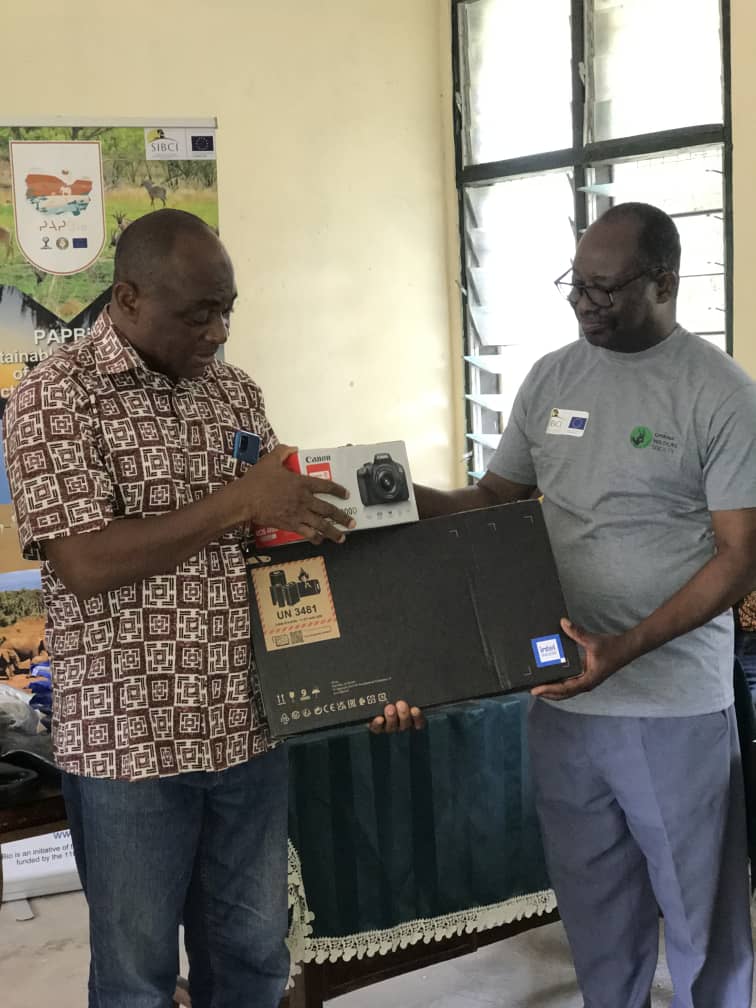
Mr. Mahama Ali, the Mole National park manager expressed his appreciation to the participants for partaking in the four days training workshop and also thanked the Ghana wildlife Society for the support extended to the park and it’s CREMAs.
Source: Padfm.com.gh/Kumatey Gorden/ 0243531604
















